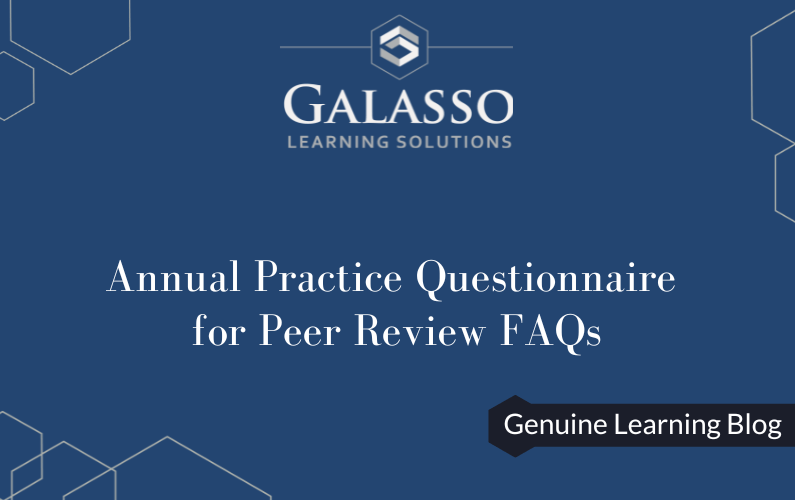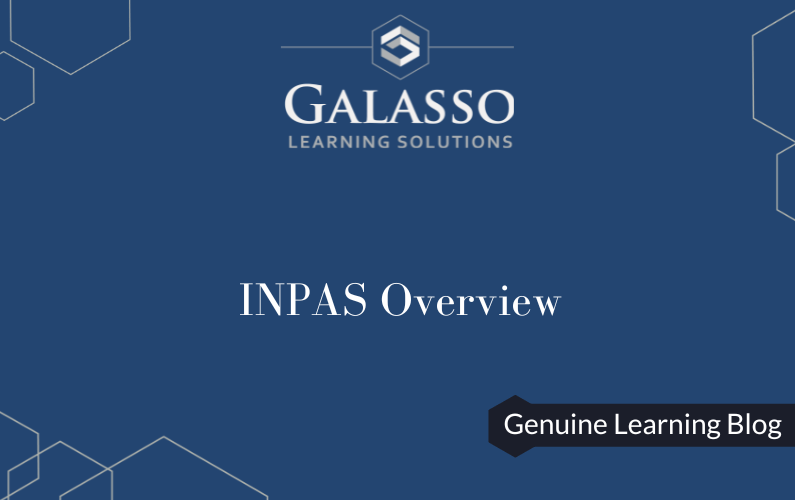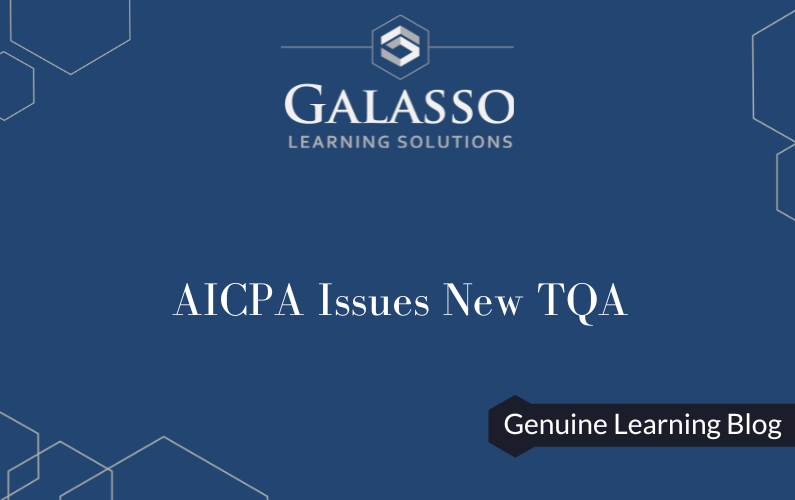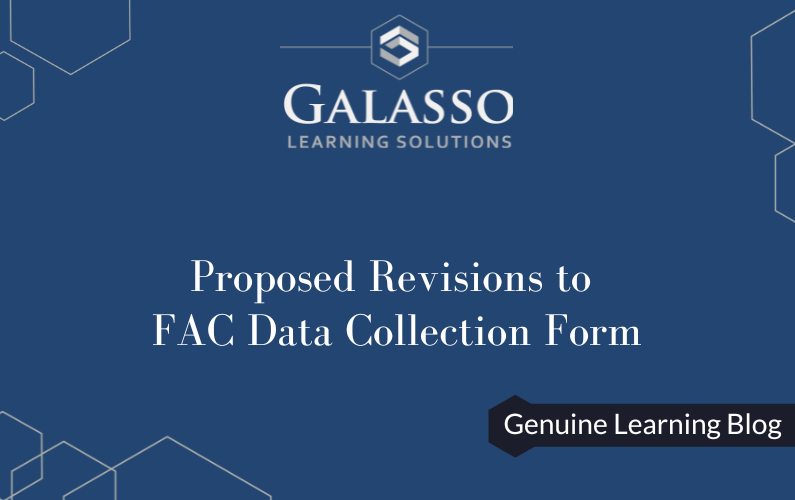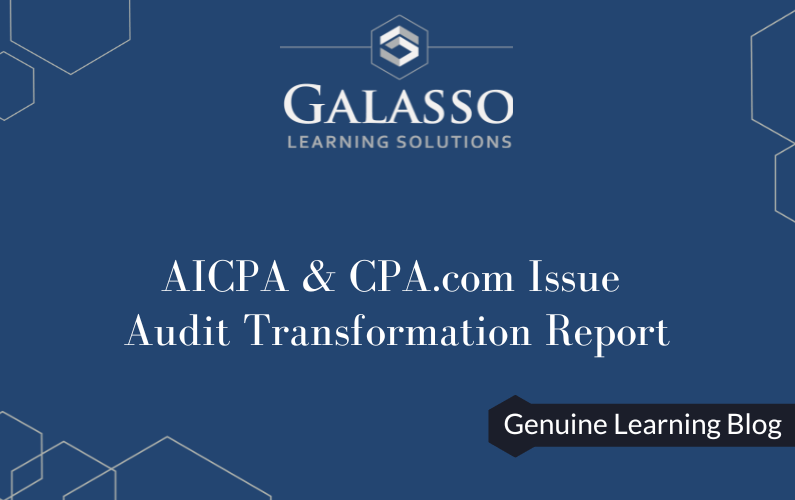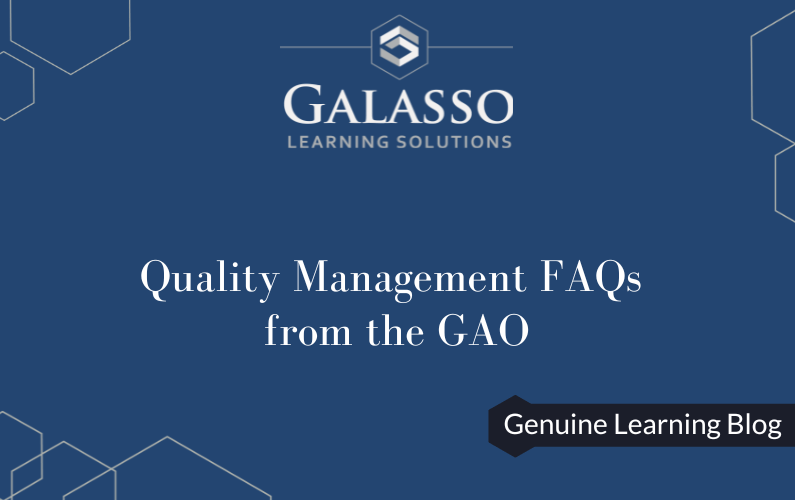Annual Practice Questionnaire for Peer Review FAQs
Stay ahead of the curve with our latest Genuine Learning Blog post on the new Annual Practice Questionnaire for Peer Review. Jaclyn Veno from Galasso Learning Solutions breaks down everything you need to know—who needs to complete the questionnaire, what it covers, when it’s required, and why it matters for your firm’s peer review success. Get expert insights on emerging areas like AI, digital assets, and ESG, plus actionable steps to ensure your CPA practice remains compliant and proactive. Perfect for managers, partners, and anyone keeping up with AICPA requirements.
INPAS Overview
Discover the essentials of the International Nonprofit Accounting Standard (INPAS) with our latest overview, guided by Alex Romero from Galasso Learning Solutions. Learn how the new standard brings transparency, consistency, and credibility to nonprofit financial reporting, who it applies to, and what major topics are covered. Stay tuned for our upcoming in-depth course and see how INPAS can improve your organization’s reporting and accountability. Perfect for nonprofit leaders, finance professionals, and CPAs seeking actionable insights and practical continuing education.
AICPA Issues New TQA
Stay informed on the latest AICPA updates with our in-depth overview of the new Technical Questions and Answers (TQA) for FASB ASC 740, covering the financial reporting implications of the One Big Beautiful Bill Act (OB3). In this Genuine Learning Blog post, Jaclyn Veno breaks down key guidance on interim reporting, tax disclosures, and how OB3 affects the new requirements under ASU 2023-09. Perfect for CPAs, accounting professionals, and firm leaders looking for actionable, learner-focused insights to stay compliant and ahead of industry changes. Discover how Galasso Learning Solutions can help you navigate evolving standards with practical, up-to-date education.
Proposed Revisions to FAC Data Collection Form
Stay up to date on the latest proposed revisions to the Federal Audit Clearinghouse’s Data Collection Form (SF SAC). Alex Romero breaks down key updates, including new resubmission pathways, structured audit findings, fraud indicators, and auditor disclosure requirements, plus tips on commenting before the February 17, 2026 deadline. Perfect for CPAs and audit professionals seeking practical insights and actionable updates.
Proposed Ethics Changes for Alternative Practice Structures
Explore the latest proposed ethics changes for alternative practice structures in the CPA profession, with a special focus on private equity impacts, in this Genuine Learning Blog episode hosted by Melisa Galasso. Get an overview of key definitions, prohibitions, and a principles-based approach to evaluating independence, along with practical insights and must-read diagrams for firms navigating evolving ownership models. Comments are open until April 30, 2026—discover actionable takeaways for your practice today!
AICPA & CPA.Com Issue Audit Transformation Report
Discover the latest insights from the AICPA & CPA.com Audit Transformation Report in this Genuine Learning Blog recap. Jaclyn Veno breaks down five key themes shaping audit modernization, highlights barriers firms face, and shares actionable strategies for improving audit quality, efficiency, and client experience. Stay ahead with practical takeaways for your firm’s transformation journey.
Quality Management FAQs from the GAO
Unlock insights from the GAO’s latest guidance on quality management systems in government auditing with Alex Romero from Galasso Learning Solutions. This video covers key FAQs, effective implementation dates, risk assessment, monitoring, and engagement quality reviews—plus practical takeaways and training resources for audit professionals. Perfect for CPAs seeking actionable, up-to-date advice on maintaining compliance with the 2024 Yellow Book.
2025 Year In Review
Get a comprehensive recap of 2025’s key accounting and auditing updates in this Genuine Learning Blog episode. Melisa Galasso reviews major changes from FASB, GASB, and other standard-setters, explains notable issued standards, and shares what’s on the agenda for 2026. Perfect for CPAs and professionals seeking actionable insights and practical continuing education.
Disclaimer: The information contained within this blog is provided for informational purposes only. Viewing this material does not qualify for CPE credit. Additionally, this general knowledge is not intended to substitute for obtaining accounting, legal, or financial advice from a professional accountant with specific knowledge of your organization. Finally, watching this blog and/or subscribing to the newsletter do not create an accountant-client relationship.


